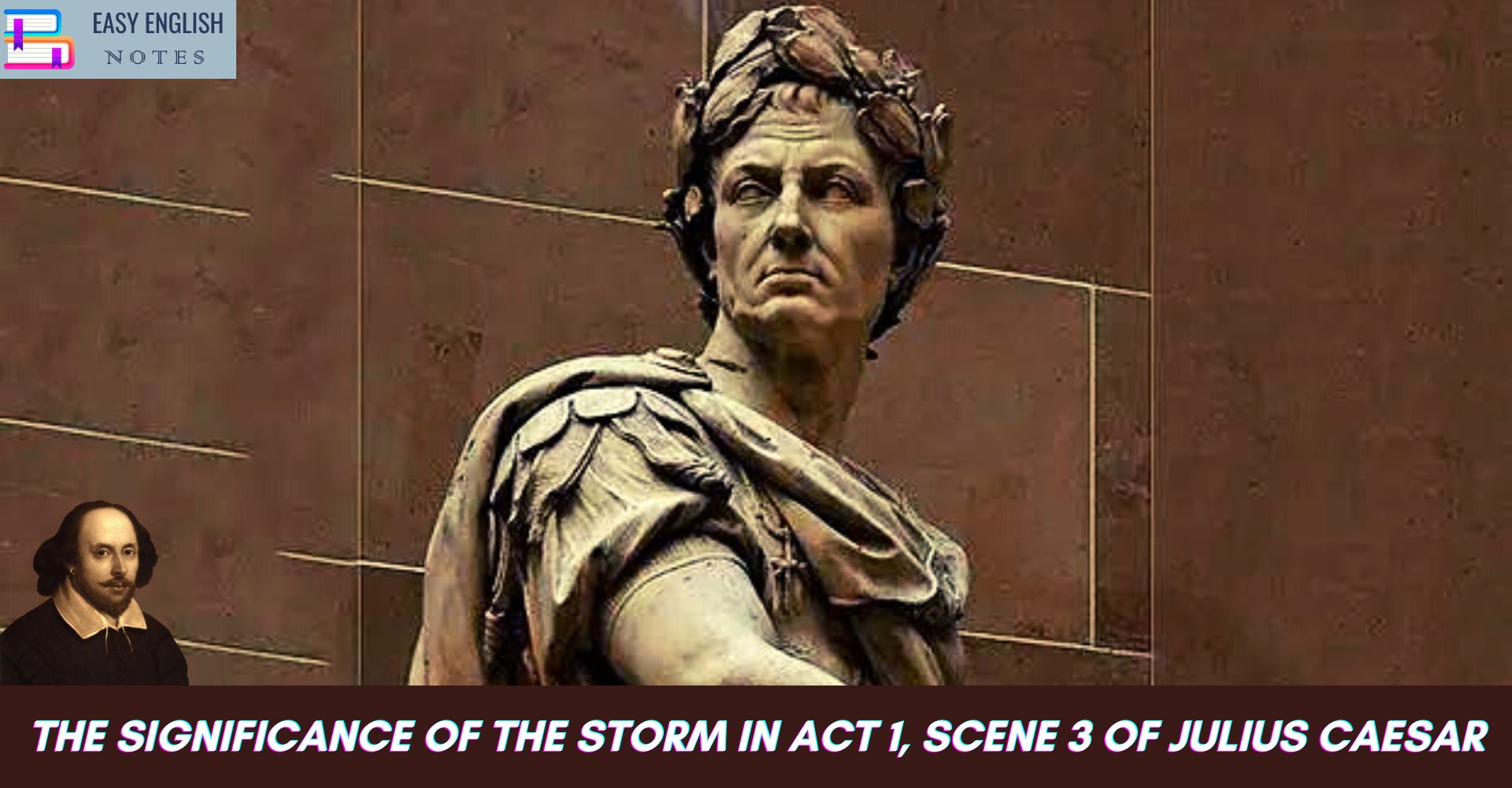Plutarch has mentioned that on the night preceding the murder, many strange sights were seen in Rome. Shakespeare took this hint and enlarged it fully for dramatic purposes.
Shakespeare paints the terrors of the night in glowing colours. There was lightning and thunder all night. The earth seemed to shake like a thing uniform. A slave’s hand was flaming and burning and yet he did not feel any fire. Warriors were seen fighting in the clouds and their blood dropped on the Capitol. These were terrible things and Shakespeare’s purpose in introducing them was to create an atmosphere of awe and terror suitable for a tragedy.
This dark atmosphere is a suitable background for the dark conspiracy to take Caesar’s life. Prior to this night Cassius had only sounded Brutus. The plan matures in the midst of the thunder and tempest. Casca, Ligarius and other important people join the conspiracy this very night, and after midnight they all collect at the house of Brutus and the detailed plan is decided upon.
Also Read :
- Compare Hamlet with Macbeth, Othello and other Tragedies
- A Short Note On The Use Of Imagery In Shakespeare’s Sonnets
- Prologue to Canterbury Tales – (Short Ques & Ans)
The terrible happenings of this night also prepare the minds of the audience for the terrible scenes that are to follow. The first two scenes were those of popular rejoicing. If the murder had taken place immediately after them on the basis of some secret plan of Cassius, it would have looked very abrupt. But due to the terrible omens we feel that Caesar is about to be killed. Hence our mind is gradually prepared for the murder and the happenings in the Senate do not give us a shock.
The storm also gives us an indication of the hand of Destiny in killing Caesar. We are made to feel that the elements have conspired with Fate to destroy Caesar.
The storm, moreover, enables us to understand the nature of the different characters. Everyone does not react to it in the same way. It had no effect on philosophers like Brutus and Cicero, while Casca was greatly moved. Cassius went about fearlessly mustering up his forces for the horrible work of the next day.
Moreover, the prodigies emphasise the greatness of Caesar. His death is preceded by the commotion of the entire heaven and earth. The impression given to us by Cassius that Caesar was a man of feeble temper and no mightier than himself is proved to be wrong, for, as Calpurnia says,
“When beggars die, there are no comets seen:
The heavens themselves blaze forth the death of princes,”
Thus, the storm plays a very important part in this play.
PLEASE HELP ME TO REACH 1000 SUBSCRIBER ON MY COOKING YT CHANNEL (CLICK HERE)











